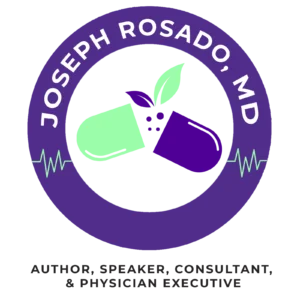Ketamine Myths Debunked - Safe Treatment
Myths, Safety, and Efficacy Explained
Many people have lingering doubts about the safety of ketamine, often recalling negative portrayals from the 90s associated with K-holes and adverse reactions at raves. However, it's time to separate fact from fiction. An educated patient is an empowered patient, and this post aims to provide you with the real facts about ketamine's use in treating PTSD, treatment-resistant depression, and even traumatic brain injuries.
Addressing Safety Concerns
Ketamine, like any medical treatment, has the potential for adverse reactions, but when used responsibly under the supervision of a healthcare professional, its risks are minimized. Consider water: drinking it excessively can disrupt your electrolytes, yet it is essential for life. Similarly, ketamine can be safe and effective when administered correctly.
Dr. Joseph Rosado emphasizes the importance of moderation and professional oversight to ensure patient safety. He has dedicated a series of videos to educate patients about the real facts of ketamine therapy, aiming to empower you with the knowledge to make informed decisions.
Safety Measures and Patient Monitoring
Before starting ketamine therapy, it’s crucial to determine whether you are a suitable candidate. Dr. Rosado offers a free 15-minute consultation to assess your eligibility based on your medical history and current health status. Key contraindications include uncontrolled high blood pressure and active alcoholism, both of which can increase the risk of adverse reactions.
During ketamine sessions, patient safety is paramount. Treatments can be administered in the comfort of your home, under the supervision of a "trip sitter," or in Dr. Rosado’s office. Monitoring includes checking blood pressure and oxygen levels to ensure they remain within safe ranges. Additionally, the therapeutic environment, including calming music and familiar surroundings, enhances the treatment's effectiveness.
Common Side Effects
While ketamine is generally safe, some patients may experience dissociative sensations, including mild hallucinations. These experiences can provide insights and support the healing journey. Dr. Rosado will address these potential side effects in detail in an upcoming video.
The Rapid and Long-Lasting Effects of Ketamine
One of the most compelling benefits of ketamine therapy is its rapid onset. Unlike traditional antidepressants, which can take weeks to become effective, ketamine's effects are often felt within hours. The benefits can last up to a week or more, making it an excellent option for those needing quick relief.
Conclusion
Ketamine is a promising and safe alternative for treating treatment-resistant depression, PTSD, and even traumatic brain injuries. If you or someone you care about could benefit from this innovative therapy, don't hesitate.
Visit josephrosadoMD.com to schedule your free consultation today. One more day of suffering is one too many. Empower yourself with the knowledge and take the first step towards healing.
What Do You Want To Learn About?

For Physicians
Stay Up To Date with My Research

For Your Company
Professional Public Speaking

For Patients
Knowledge Is Power

